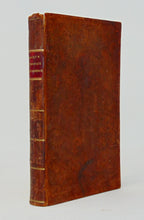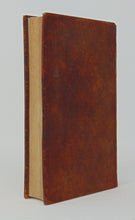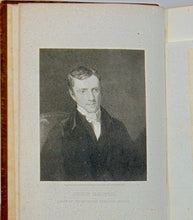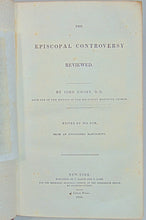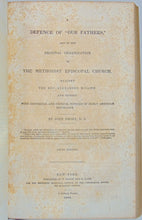
Emory, John. The Episcopal Controversy Reviewed bound with A Defence of "Our Fathers" and of the Original Organization of The Methodist Episcopal Church against the Rev. Alexander M'Caine and others; With Historical and Critical Notices of early American Methodism. T. Mason and G. Lane, for the Methodist Episcopal Church, at the Conference Office, 1838 & 1840. First and Fifth Editions. [7672]
Two books bound as one volume. Full tree calf with red leather spine title label in gilt, gilt rules to spine, outer hinges sturdy, some wear to top of spine, surface crazing to lower part of spine. 5 1/2 x 8 3/4 inches, engraved portrait of John Emory with tissue guard, 183 pp. to first book. Separate title page and pagination to second book, 154 pp. This volume has foxing, and is tightly bound with no missing pages. Very good. Leather bound.
These two books were counters to the movement of the Protestant Methodists, a group that wished to have laymen included in the decision-making process of the Methodist Episcopal Church. They had begun their own separate Conferences in 1828. Emory sought to establish the government of the ME church firmly upon Scriptural grounds, and unimpeachable by detractors.
John Emory (1789-1835), b. Spaniard's Neck, Maryland; d. in a carriage accident in Maryland. He was educated by tutors and at Washington College, Chestertown, Maryland. He studied law and was admitted to the bar, but by 1910 he had determined to enter the Methodist ministry. He became an important figure for the denomination, both as a preacher and as an administrator. He was elected Bishop in 1832. Emory founded The Methodist Quarterly Review. He was active in the founding of New York University, Wesleyan University, and of Dickinson College as a Methodist school. He debated in print both Bishop White of the Protestant Episc0pal Church and the leaders of the Protestant Methodist division.





